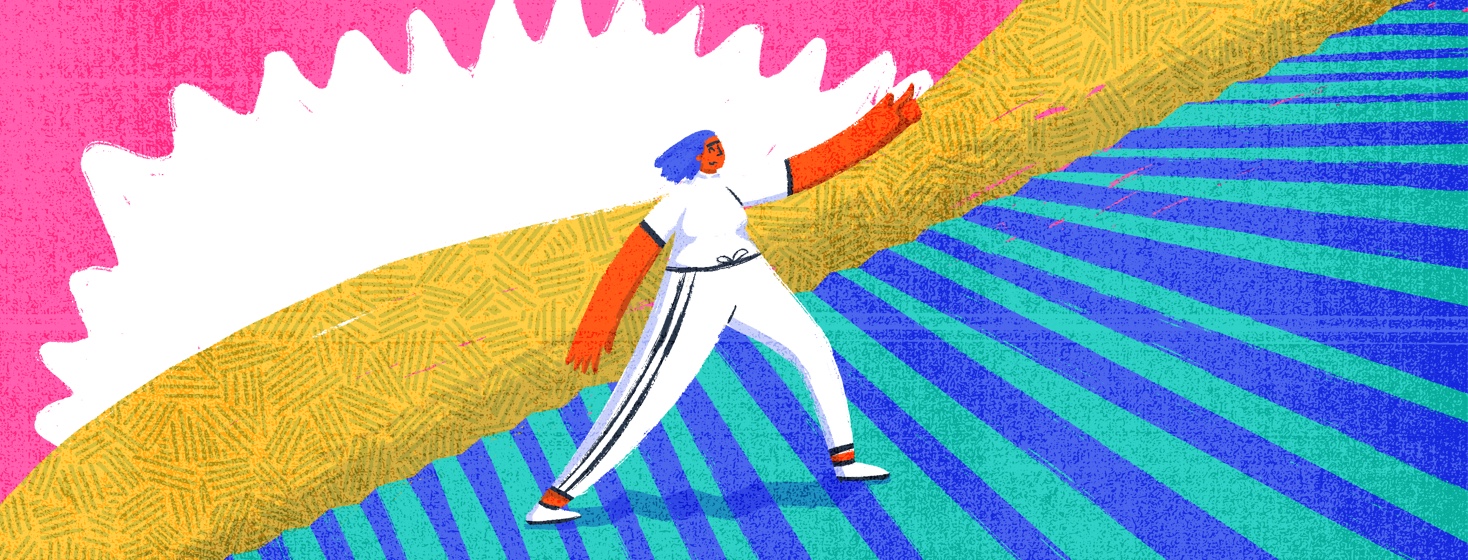How I Applied "Atomic Habits" To My Life With CF
If you haven't already heard of it, Atomic Habits by James Clear is a book that talks about what habits are and how they develop over time. Personally, I found this book to be incredibly insightful and helpful in my journey for self-improvement. "Atomic Habits" are described as small actions we take that lead to bigger results, whether good or bad. James Clear tells inspiring stories and touches on psychology and neuroscience to explain his approach
Here are some ways that I've applied the contents of this book to my life with CF:
1) Looking at WHO I am (my identity)
While I don't think people should limit or define themselves solely based on their conditions (e.g. CF), I also think that they should acknowledge them as a part of their life. For a long time, I resisted the idea that I was "a sick person". I didn't want CF to be a part of my "identity". It was an aspect of my life that I hid away and pretended didn't exist, which was easy to do for a while. When my CF became more advanced, however, I couldn't ignore it anymore. After reading Atomic Habits, I realized that embracing my health issues as a part of who I am helped me feel less bitter and resentful about doing the things I need to be doing to take care of myself. Being a CF patient isn't just something I do anymore, it is something I am.
2) I changed my focus from being goal-oriented to being system-oriented
If you're anything like me, most of your goals are ongoing (which means they're actually habits). For instance, a "goal" I have is to take my supplements every day. Well, that's not something I can just cross off a list because "every day" isn't really achievable until I literally die. Sure, I can make mile-stone goals (like "take my supplements every day for a month"), but what happens at the end of the month? I don't want to just stop taking my supplements, right?
James Clear describes achieving goals as treating the symptom of a system. If my desire is to increase my endurance, I might set a goal to be able to jog for 30 minutes without stopping, but once I've achieved that goal, I will probably go back to the same habits (i.e. systems) that caused my poor endurance in the first place. Instead, if I decide to make a habit of going on short jogs regularly (and stick to it), I will increase my endurance and likely achieve the goal of being able to jog for 30 minutes regardless.
3) Building & breaking habits using the 4 laws of behavior change and their opposites
James Clear explains that to build positive habits, we should use "the 4 laws of behavior change":
- Make it obvious
- Make it attractive
- Make it easy
- Make it satisfying
Here are a few ways I've been able to incorporate these rules into my daily life:
To break negative habits, we use the opposite of the 4 laws. Habits should be invisible, unattractive, difficult, and unsatisfying.
(I even designed myself a little worksheet, similar to the commonly known SMART goals worksheets, where I can write out how to implement the 4 laws and their inverses for my positive habits and their opposites.)
A few more takeaways
I've barely begun to get into the meat of the book in this short article, but I did want to share a few more takeaways that really stuck with me:
One of my favorite tips in the book is when James Clear is describing how it's okay to skip a habit... once. Life happens and sometimes you can't follow through every day, but try your best not to miss twice because "that is the start of a bad habit". As someone whose life is pretty chaotic, it's nice to be told that perfection isn't necessary.
One of the most important things you can do for yourself is to not allow your bad moods to get in the way. Even if you don't feel like doing something, at least show up. If I don't feel like walking, I could at least get dressed, put on my shoes, and step outside. Chances are I'll end up walking anyways because "I'm already here", plus my dog will see me getting ready and guilt me into it.
James Clear describes gain/loss with this analogy: "If you have $100, a 50% gain would boost you to $150; but it only takes a 33% loss to bring you back down to $100." It takes a much smaller degree of loss than gain to reverse your progress. So it's important to stick with your positive habits as much as you are able.
If you found any of this advice helpful, or want to add or expand on any of the ideas above, leave a comment!

Join the conversation